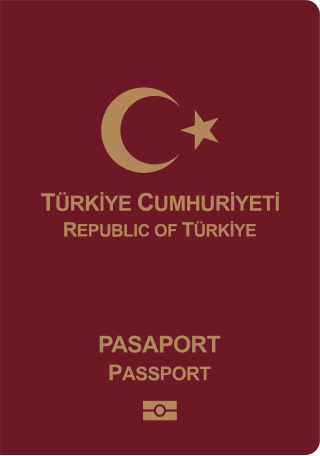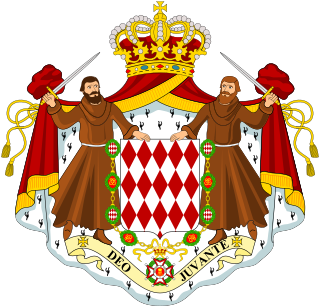Andorra is a landlocked country in Europe, which lies between France and Spain, whose transport infrastructure is primarily road provision.

A visa is a conditional authorization granted by a polity to a foreigner that allows them to enter, remain within, or leave its territory. Visas typically include limits on the duration of the foreigner's stay, areas within the country they may enter, the dates they may enter, the number of permitted visits, or if the individual has the ability to work in the country in question. Visas are associated with the request for permission to enter a territory and thus are, in most countries, distinct from actual formal permission for an alien to enter and remain in the country. In each instance, a visa is subject to entry permission by an immigration official at the time of actual entry and can be revoked at any time. Visa evidence most commonly takes the form of a sticker endorsed in the applicant's passport or other travel document but may also exist electronically. Some countries no longer issue physical visa evidence, instead recording details only in immigration databases.

A customs union is the principal area of robust formal agreement between the Principality of Andorra and the European Union (EU). Andorra borders two EU member states: France and Spain.

The visa policy of the Schengen Area is a component within the wider area of freedom, security and justice policy of the European Union. It applies to the Schengen Area and to other EU member states except Ireland. The visa policy allows nationals of certain countries to enter the Schengen Area via air, land or sea without a visa for stays of up to 90 days within a 180-day period. Nationals of certain other countries are required to have a visa either upon arrival or in transit.
A passport stamp is an inked impression in a passport typically made by rubber stamp upon entering or exiting a territory.

The Schengen Area is an area comprising 27 European countries that have officially abolished all passport and all other types of border control at their mutual borders. Being an element within the wider area of freedom, security and justice policy of the European Union (EU), it mostly functions as a single jurisdiction under a common visa policy for international travel purposes. The area is named after the 1985 Schengen Agreement and the 1990 Schengen Convention, both signed in Schengen, Luxembourg.

Visa requirements for Turkish citizens are administrative entry obligations by the authorities of other states placed on Turkey. As of 13 April 2023, Turkish citizens had visa-free or visa on arrival access to 111 countries and territories, ranking the Turkish passport 51st in terms of travel freedom according to the Henley Passport Index.

Visa requirements for Pakistani citizens are administrative entry restrictions imposed on citizens of Pakistan by the authorities of other states. As of June 2023, Pakistani citizens had visa-free, visa-on-arrival and eVisa access to 75 countries and territories. All of the updated links and visa-related requirements can be found listed in the chart below. Pakistani passport holders that hold multi-entry visas or permanent residency permits in certain European countries, Canada, USA, GCC states or Australia may grant the ability to apply for eVisas to certain nations, as well as Visa on Arrival access that they would not have without visas to these nations. The Pakistani passport is currently ranked 103th in terms of travel freedom according to the Henley Passport Index in the first Quarter of 2023.

Visa requirements for Indonesian citizens are administrative entry restrictions imposed on citizens of Indonesia by the authorities of other states. As of August 2022, Indonesian citizens had visa-free or visa on arrival access to 73 countries and territories, ranking the Indonesian passport 71st in terms of travel freedom according to Henley Passport Index. Indonesia is also a part of ASEAN and has reciprocal visa-free access to these countries.
Visa requirements for Australian passport holders are administrative entry restrictions by the authorities of other states placed on citizens of Australia entering with an Australian passport.

Visa requirements for Armenian citizens are administrative entry restrictions by the authorities of other states placed on citizens of Armenia. As of January 2023, Armenian citizens had visa-free or visa on arrival access to 65 countries and territories, ranking the Armenian passport 81st in terms of travel freedom according to the Henley Passport Index.

Visa requirements for Cuban citizens are administrative entry restrictions by the authorities of other states placed on citizens of Cuba. As of 31 July 2022, Cuban citizens had visa-free or visa on arrival access to 65 countries and territories, ranking the Cuban passport 82nd in the world in terms of travel freedom according to the Henley Passport Index.

Visa requirements for Czech citizens are administrative entry restrictions by the authorities of other states placed on citizens of the Czech Republic.
Visa requirements for New Zealand citizens are administrative entry restrictions by the authorities of other states placed on citizens of New Zealand. As of 2023, New Zealand citizens had visa-free or visa on arrival access to 187 countries and territories, ranking the New Zealand passport 7th in terms of travel freedom according to the Henley Passport Index.

Visa requirements for Venezuelan citizens are administrative entry restrictions by the authorities of other states placed on citizens of Venezuela. As of 7 September 2021, Venezuelan citizens had visa-free or visa on arrival access to 130 countries and territories, ranking the Venezuelan passport 40th in terms of travel freedom according to the Henley Passport Index.

Monaco does not have a visa policy of its own and the Schengen Visa policy applies. Although Monaco is not part of the European Union, or the Schengen Agreement, its territory is part of the Schengen Area by virtue of its customs Union with France as a result of the "Convention on Good Neighbourly Relations of 18 May 1963 on the entry, stay and establishment of foreigners in Monaco" between France and Monaco. The 1963 convention was adapted to allow Monaco to be administered within the Schengen Area as if it were part of France.

Visa requirements for Andorra citizens are administrative entry restrictions by the authorities of other states placed on citizens of Andorra. As of 2 July 2019, Andorran citizens had visa-free or visa on arrival access to 166 countries and territories, ranking the Andorran passport 21st in terms of travel freedom according to the Henley Passport Index.

The border between Andorra and Spain is in the Pyrenees between northern Spain and southern Andorra. It is 64 kilometres (40 mi) long. It is an external border of the EU, as well as an external border of the Schengen area, as Andorra is neither part of the EU nor a party to the Schengen agreement.

The Andorra–France border extends for 57 km (35 mi) in southern France and northern and north-eastern Andorra.

During the COVID-19 pandemic, many countries and regions imposed quarantines, entry bans, or other travel restrictions for citizens of or recent travelers to the most affected areas. Some countries and regions imposed global restrictions that apply to all foreign countries and territories, or prevent their own citizens from travelling overseas.
















